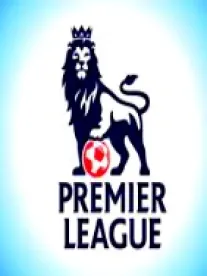On 4 October 2011, the European Court of Justice ("ECJ") published its decision in relation to the long-running saga concerning the territorial licensing of Premier League football rights and the legitimacy of the use of foreign decoders. The origins of this landmark case lie in the prosecution of a pub landlady, Karen Murphy, for transmission of Greek broadcasts of Premier League games. The Premier League, via its enforcement body Media Protection Services Ltd ("MPS"), sought to prosecute Ms Murphy under the Copyright, Designs and Patents Act 1998 (“CDPA”). At the same time, the Premier League pursued a number of other similar cases against other landlords, and importers and retailers of foreign decoders. These cases resulted in a series of appeals, raising a variety of issues, that, ultimately, the High Court considered should be referred to the ECJ.
Most significantly, the practice of granting exclusive broadcast rights on a territorial basis was challenged under Article 101 of the Treaty of the Functioning of the European Union ("TFEU"). The ECJ's decision confirms that the clauses in the exclusive licences which prohibit or limit cross-border provision of broadcasting services are restrictive of competition and are prohibited by Article 101(1) TFEU.
In reaching that point, the ECJ had to consider a number of complex questions concerning European copyright and intellectual property laws, and the fundamental freedoms as set out in the TFEU, as well as EU competition law. In brief, the main conclusions are set out below.
Restriction of the freedom to provide services
Any national legislation which precludes the sale and use of foreign decoders which give access to satellite broadcasting services from another Member State contravenes the overriding principle of the freedom of movement of services within the EU. Although the specific restrictions in this case were contained in the contracts between the Premier League and its broadcasters, the Premier League relied on provisions in the CDPA to enforce those restrictions through the imposition of various penalties for non-compliance. The use of the CDPA as a method for enforcement means, therefore, that it was itself restricting the freedom to provide services. Such a restriction cannot be objectively justified, whether by reference to the need to protect intellectual property rights, or in relation to the preservation of the "3pm protected window" aimed at encouraging the public to attend grass roots football games. In particular, the ECJ noted that whilst intellectual property rights owners are entitled to appropriate remuneration for exploitation of their rights, there is no guaranteed access to the type of premium that the Premier League has traditionally been able to attract. With regard to convincing people to attend matches, rather than watch them in the pub, the ECJ suggested that there are less restrictive ways to achieve that aim, such as making it a contractual requirement that no broadcaster, regardless of location, can show games during that slot.
Absolute territorial protection breaches the Article 101 TFEU prohibition
When the defendants initially sought to argue that the system of exclusive licensing on a territorial basis might infringe Article 101(1), the Premier League tried to have it dismissed by way of summary judgment on the grounds that it was settled case law that such systems were legitimate. The judge refused to grant summary judgment, instead noting that this was a real issue that had not been properly considered for 25 years, and that the decisions supporting the Premier League’s position may no longer be appropriate in the changed economic and regulatory circumstances. That position has been vindicated.
The ECJ confirmed that whilst exclusive licences to broadcast in particular territories may be restrictive by effect, they are not restrictive by object so can, in principle, be granted. Provisions within those licences, however, which confer absolute territorial protection and might, therefore, tend to restore the national borders which the single market seeks to eliminate, are, in fact, restrictive by object. This means that regardless of the effect of those provisions, they are prohibited under Article 101(1) TFEU. In this case, the requirements imposed on broadcasters not to supply decoding devices that would enable access to the protected broadcast outside the territory covered by the licence agreement constituted an absolute territorial restriction preventing cross-border provision of services. Moreover, the ECJ did not consider that the clauses could be exempted under Article 101(3).
Given that the ECJ’s ruling is final and cannot be appealed, this finding is a significant blow to the model of rights management used by the Premier League, and other rights owners, to maximise the profits that can be gained from the exploitation of those rights
Broadcasters can protect their copyright in creative content
The ECJ’s findings in relation to copyright protection may, however, offer a slight silver lining to the Premier League. The ECJ stated that football matches themselves are not copyrighted works and that broadcasts, therefore, of those games can not attract the benefit of the reproduction right granted to rights holders under the Copyright Directive. The additional elements of the broadcast, however, which are the result of intellectual creation of the “author”, such as the opening video sequence, the Premier League anthem, logos, graphics and highlight videos, do, however, benefit from this protection.
Whilst this does not prevent the transmission of games via satellite to domestic users, the Copyright Directive does protect the author’s rights with regards to communication of their works to the public. Having decided that broadcast of a football match in a pub would constitute a communication to the public, this opens up the possibility of the Premier League protecting broadcasts by flooding them with elements of “creativity” then seeking injunctions and damages under the Copyright Directive as a way of enforcing its rights. That said, these civil remedies, bearing in mind all the attendant difficulties in meeting the requisite evidential requirements, means that such methods of protection are a long way from the private prosecution and criminal convictions and fines that have been utilised by the MPS to date.
Although this decision is in many ways tailored to the specific circumstances, the decision in so far as it relates to freedom of movement of services and competition law marks a significant step forward in the evolution of those laws and the ongoing push towards a true single market. How it actually impacts on the approach of the Premier League, however, we will have to wait and see. Whilst some have heralded this as an end to the type of broadcasting deals that have garnered the Premier League big money, others believe that alternative methods to maximise the value of the rights will be found. What does seem likely, however, is that if there are still avenues for MPS to police the current territorial licensing deals, such as under the Copyright Directive, it is likely to do so.
In any event, the ECJ's ruling does not, however, mark the end of this particular tale. Having answered the questions put to it by the High Court, the case will now return there for the final decision as to what this means in practice for the parties involved. Unfortunately for Ms Murphy, the case seems to have echoes of the equally drawn out case involving Mr Bernie Crehan, another landlord who sought to challenge a "beer tie" under EU competition law. Whilst he succeeded in getting a decision from the ECJ that, if the beer tie did infringe Article 101(1), he could be entitled to damages, thereby ending years of speculation about the viability of the so-called "Euro-defence", the House of Lords ultimately decided that it did not infringe the prohibition and Mr Crehan lost. The glimmer of hope for Sky and the Premier League that suggests that there may still be a copyright challenge available when games are made available to the public, as they are in pubs, means that Ms Murphy too may have secured somewhat of a phyric victory. Her conviction should be overturned, but her continued use of the foreign feed is only likely to bring about more legal action. Whilst it is inevitable that the Premier League will be forced to make adjustments to their contractual arrangements and to their enforcement tactics, if any publicans out there are thinking that they are going to be able to show football games for just a few "drachmas", they are likely to be soundly disappointed. Domestic users, on the other hand, can take their pick of international broadcasters. As such, whilst this seems, overall, to be somewhat of a score draw for the parties, when you take the away goals rule into account, however, football is the winner.



 />i
/>i

